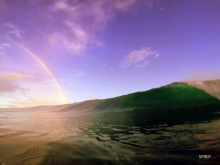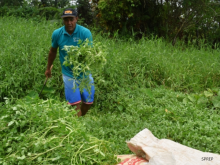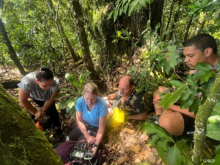Dear MEAM (Marine Ecosystems and Management) newsletter subscribers,
Starting with this issue, MEAM will pair some of its articles with live online events – chats and webinars – to provide additional opportunities for interactive discussion and knowledge sharing on critical topics. MEAM will work with OpenChannels.org and the EBM Tools Network to host these events.
A webinar on how social marketing can improve conservation and management outcomes led by Diogo Veríssimo of Rare and Georgia State University will be held on Thursday, March 24, at 1 pm US EDT/10 am PDT/5 pm UTC. Register for the webinar.
A webinar on the use of InVEST for coastal zone management and marine spatial planning in Belize led by the Natural Capital Project and Belize Coastal Zone Management Authority will be held on Tuesday, February 23, at 1 pm US EDT/10 am PDT/5 pm UTC. Register for the webinar.
Best wishes for your work,
Sarah Carr, MEAM Editor
[email protected]
https://meam.openchannels.org
MEAM (Marine Ecosystems and Management) Newsletter – February 2016
“Start where your audience is, not where you want them to be”: What EBM and MSP practitioners can (and should) learn from marketing. Marketing is inherently about getting people to change their behavior, whether it is buying a product, recycling, or supporting a new approach to management. To learn more about what EBM and MSP practitioners can learn from marketing to make their processes more effective, MEAM spoke with three conservation marketing. Read more.
Tundi’s Take: Marketing conservation: Ocean-serving, or self-serving? “Marine conservationists have long bemoaned the lack of attention to the field. It is assumed that if only we could reach everyone and make them care, they would do the right thing and ocean health would get better… But marketing conservation is not simple…” Read more.
The EBM Toolbox: Using decision support tools for Coastal Zone Management in Belize. In 2010, Belize’s Coastal Zone Management Authority partnered with WWF and the Natural Capital Project to answer the question, “Where should we site coastal and ocean uses to reduce risk to marine ecosystems and enhance benefits they provide to people?” Read more.
Latest News and Resources for Ocean Planners
Wetlands and seagrass restoration can now earn carbon credits
Researchers refute overestimates of global value of ecosystem services
Report offers framework for resolving commercial fishing-offshore wind conflicts
Case studies and lessons learned for engaging communities in offshore wind shared
Fisheries and aquaculture vulnerability assessment steps proposed
From the Archives: Integrated land-and-sea management: Examining three cases where marine practitioners are looking upstream. From the Archives calls attention to past MEAM articles whose perspectives and insight remain relevant. In this article from June-July 2013, practitioners discuss integrated land-sea management strategies including coordinating upstream and downstream conservation, working with upstream farmers, and improving water quality in catchments. Read more.
View/print the full issue at https://meam.openchannels.org/print/meam/issue/february-2016-94.
MEAM (Marine Ecosystems and Management)
Editor: Sarah Carr
Supervising Editor: John B. Davis
Contributing Editor: Tundi Agardy
OpenChannels Manager: Nick Wehner
EDITORIAL BOARD:
Chair: David Fluharty, University of Washington
Kevern Cochrane, Rhodes University
Jon Day, James Cook University
Mark Erdmann, Conservation International
Ben Halpern, National Center for Ecological Analysis and Synthesis
Karen McLeod, Oregon State University
Jake Rice, Department of Fisheries and Oceans, Canada
Kristin Sherwood, FishChoice
Kevin Stokes, Fisheries consultant
CORRESPONDENCE:
MEAM c/o John Davis
School of Marine and Environmental Affairs
University of Washington
3707 Brooklyn Ave. NE
Seattle, WA 98105, USA
[email protected]
Tel: +1 425 788 8185
Marine Ecosystems and Management is published monthly by Marine Affairs Research and Education (MARE), a 501(c)(3) not-for-profit corporation, in association with the School of Marine and Environmental Affairs, University of Washington.
MEAM is funded by the Gordon and Betty Moore Foundation and the David and Lucile Packard Foundation.
All content has been written by the MEAM editorial staff unless otherwise attributed. The views expressed herein are those of the author(s) and should not be interpreted as representing the opinions or policies of the Gordon and Betty Moore Foundation or the David and Lucile Packard Foundation.
Subscriptions to MEAM are free. To subscribe, visit https://meam.openchannels.org/subscribe-meam. As of September 2015, MEAM delivery is by email only.




